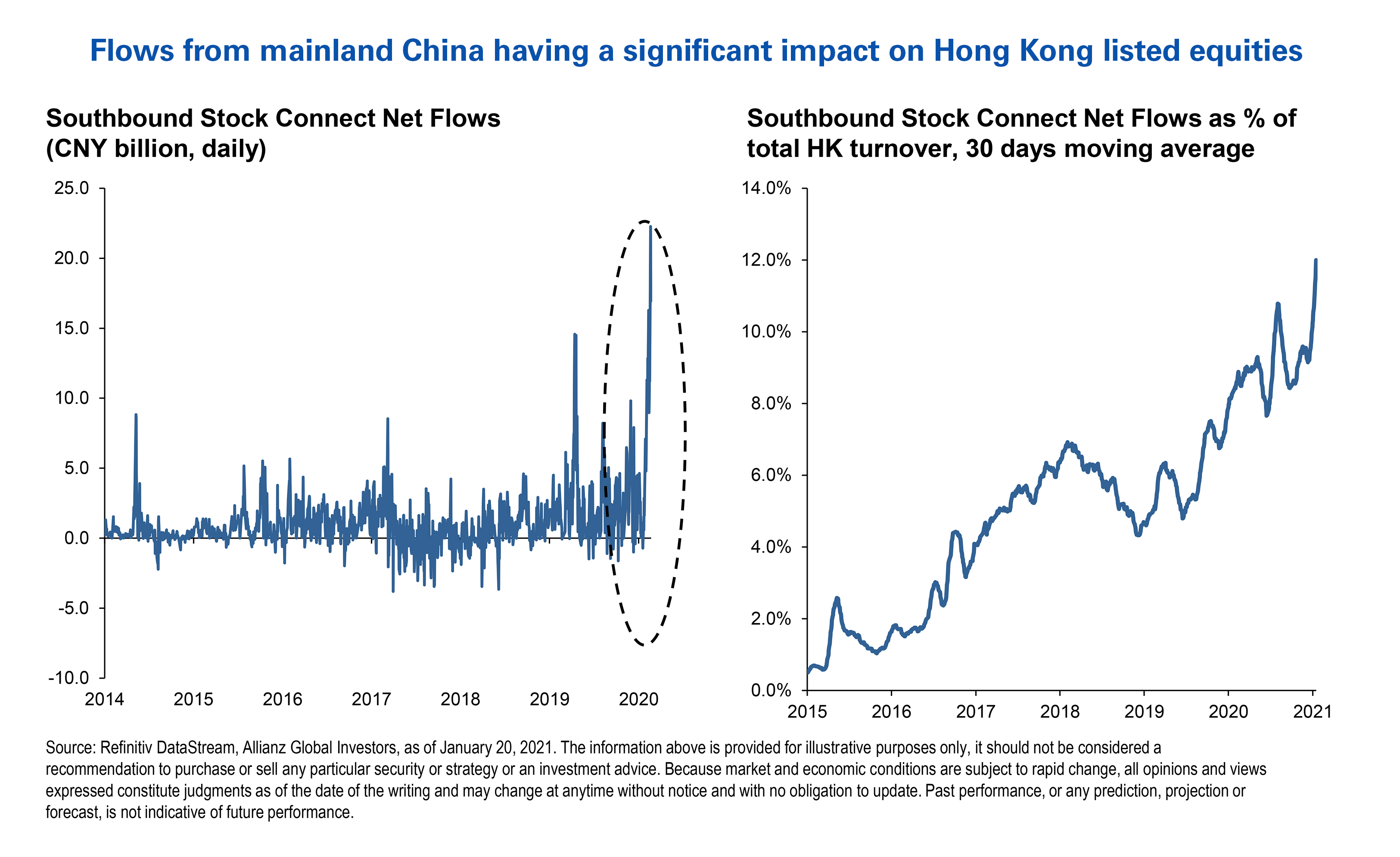The surging demand for Hong Kong stocks from mainland Chinese investors that has boosted the market since last year is expected to continue over the long term as mainland high net worth individuals (HNWIs) seek alternatives to real estate.
Investors are also taking a cue from the Chinese regulators who have made it clear that they want to avoid an overheating of the mainland property market, the traditional go-to asset class for Chinese HNWIs.
“If you look at the [southbound] Stock Connect net flows as a percentage of Hong Kong turnover, it started at 6% around 2018-2019 but since then it has shot up to 12% last year. We think the trend will continue,” says Raymond Chan, portfolio manager and chief investment officer, equity, Asia-Pacific, at Allianz Global Investors.
“The Chinese government has already stated that they don’t want to see the property market become very buoyant. As such, they are encouraging asset management companies to establish more mutual funds to direct some of the mutual fund money to the Hong Kong market,” Chan adds.
The average daily trading volume for the southbound Shanghai-Hong Kong Stock Connect increased by 69% to HK$149.75 billion (US$19.3 billion) in January 2021 from HK$88.42 billion in December 2020.
This is expected to be a positive development for the Hong Kong equity market, which has experienced disappointing returns and lagged behind other Asian markets in performance in recent years.

“Last year we saw more and more mainland money coming to the market – the so-called southbound Stock Connect,” Chan says. “It was very much a positive movement and you can see strong flows of mainland Chinese money. This is important. They are interested in buying into companies they cannot find in Shenzhen and Shanghai – companies listed in Hong Kong like Tencent, China Mobile, CNOOC, Meituan, just to quote a few.”
As a result of this trend, Chan expects the constituent stocks of the Hang Seng Index, Hong Kong’s stock exchange benchmark, to change in order to reflect the increasing importance of Hong Kong-listed mainland companies.
At the same time, overseas investors are also piling into Chinese A-shares, pushed by the skyrocketing valuations in the US stock market and the increasing weakness of the US dollar.
“We certainly see a lot of interest from overseas clients trying to put money in the China A-share market. We’ve seen this trend over the last two years and most of the last 12 months. Valuations in the US market which has performed very well are no longer cheap. If you believe the dollar weakness has just started and will continue on its downward momentum, given what’s happening with the government expenditures in the US, certainly foreign money will want to take advantage of the weakness in the US dollar and invest in the overseas market. One area they really want to focus on is the China A-shares because of the MSCI inclusion. They are positioning themselves for the long term, which explains the pickup in the northbound money,” Chan says.
The average daily trading volume of the northbound Shanghai-Hong Kong Stock Connect increased by 28% to 1.3 trillion yuan (US$201 million) in January 2021 from 1.05 trillion yuan in December 2020.









